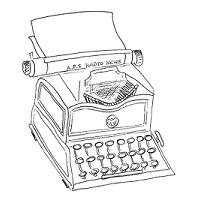economy news online news
Wall Street stocks tumbled again Tuesday as leading bank executives expressed worries about a possible recession, adding to investor unease. online news
JPMorgan Chase Chief Executive Jamie Dimon reiterated that he saw the chance for a “mild to hard recession” next year in an interview with CNBC, while Goldman Sachs chief David Solomon offered a similar appraisal in a public appearance.
“The data looks increasingly like 2023 is going to include a recession,” said Merk Investment’s Nick Reece. “I don’t think a recession has been… adequately priced into the markets.”
The Dow Jones Industrial Average finished down 1.0 percent at 33,596.34.
The broad-based S&P 500 shed 1.4 percent to 3,941.26, while the tech-rich Nasdaq Composite Index dropped 2.0 percent to 11,014.89.
Monday’s losses added to the toll this week after major indices also fell more than one percent on worries that a recent batch of solid US economic data will prolong the Federal Reserve’s aggressive policies to counter inflation.
Large technology companies were especially weak, with Apple, Amazon and Google parent Alphabet all losing more than two percent.

Facebook parent Meta suffered an even bigger drop of nearly seven percent after the European Data Protection Supervisor said it would take action against the company over its use of personal data for targeted advertising.
EDPS did not give details or recommend fines, but critics have accused the social media giant of flouting intended to protect consumer data.
jmb/bys
© Agence France-Presse. All rights are reserved.
economy news online news
Notes from APS Radio News
From the early part of March 2020, about the time the virus story was being given deep and wide coverage, to May of 2022, the Federal Reserve added over $4.5 trillion to its holdings, in the context of a massive program of quantitative easing.
In essence, the US central bank infused rapidly into the economy trillions of dollars, by purchasing billions of dollars’ worth of government and corporation bonds each and every month.
On the supply side, on other hand, many locations in the US imposed lockdowns and restrictions that had the effect of shuttering hundreds of thousands of small and medium-sized businesses.
The proximate effect of those closures contributed to shortages of various types of goods and services.
Economists say that the combination of shortages of goods and services and rapid and massive additions to the nation’s money supply has led to higher rates of inflation.


